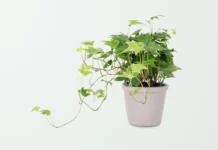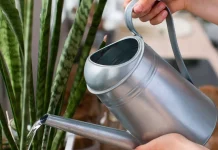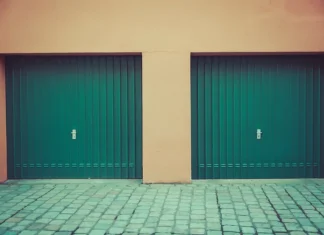Orchids are among the best-selling houseplants. Why? There are various reasons why most people prefer orchids when it comes to houseplants.
Reasons That Make Orchids Popular
Here is the list of reasons that many of us opt for orchids:
Inexpensive
If you are on a tight budget but love the sight and smell of fresh plants in your home or room, orchids are the answer. They are quite inexpensive when compared with other houseplants.
Easy to Grow
Growing orchids is no rocket science, nor does it require professional help. All you need is a pot, and that is it.
No Maintenance
They require little to no maintenance at all. Just a little water and indirect sunlight will get the job done.
Visually Appealing
Orchids come in various colors. When placed correctly, they add to your room or home’s beauty.
Why is my Orchid Turning Yellow?
If you own orchid leaves and are wondering, “Why is my orchid turning yellow?” you are not alone. Many people end up on Google, searching “How to save an orchid with yellow leaves?”. Well, if you are about to do the same, we recommend against it. Why? Orchid leaves turning yellow is a part of the natural life cycle. When old leaves are about to die, they turn yellow before eventually withering away. While it is natural, at times, it might indicate a problem. So, now you know why are my orchid leaves turning yellow. Let us focus on the next part.
What Do You Do When Orchid Leaves Turn Yellow?
As mentioned earlier, orchid leaves turn yellow naturally. At times, that is not the case, and the problem is a disease. Therefore, instead of waiting to see if it is natural or because of some other problem, be a little proactive. If new flower spikes sprout up when the current leaves turn yellow, it indicates natural withering. If there are no spikes, it indicates problems. Thus, we will focus on the reasons that can result in orchid leaves turning yellow.
Why are my orchid leaves turning yellow – Reasons to know
There are several other reasons why orchid leaves turn yellow.
1. Direct Sunlight
All plants require sunlight, and there are no two views about it. But some plants wither away in direct sunlight. That does not mean that you put them in a corner or in continuous shade. Instead, such plants need indirect sunlight. Orchids are such plants that flourish in indirect sunlight. Therefore, the answer to how to save an orchid with yellow leaves is by removing them from direct sunlight. You can add a curtain between the windows and the plant to reduce the sunlight’s intensity.
2. Excess Fertiliser
Using too much fertilizer will result in the orchids turning yellow. The reason is that it causes excess nutrients in the soil, preventing the orchid from blooming correctly. Therefore, before you decide to add more fertiliser, check if the plant really requires it.
3. Overwatering
Remember, earlier, we mentioned that orchids are low maintenance? They require very little water than other houseplants. If you just became interested in houseplants, it is quite common for you to overwater them. Trust us when we say that it requires a little practice before knowing the precise water requirements for each plant. When you overwater orchids, they start to rot. In some cases, the rot can spread to the roots, meaning that the orchid is good as dead.
How to deal with overwatering? Simple. Before watering, dip your fingers into the pot. Is it dry? If yes, you can water the orchid, but not too much. If it is not dry, refrain from watering.
4. Underwatering
On the flip side, underwatering can also cause yellowing leaves. Regular watering is necessary for orchids, and if the soil becomes too dry, the leaves will turn yellow and shrivel. Ensure that your orchid receives adequate moisture without being excessively wet or dry.
5. Water Quality
In some areas, the water contains too many chemicals like chlorine. Orchids cannot process such chemicals, causing them to turn yellow. Before you decide to change the water, take a sample and have it tested. If the tests indicate chemicals, you have several options. First, you may use rainwater. You can store it in containers just for the purpose of watering the plants. Second, you can install a water filtration system. However, we do not recommend it just for the sake of watering plants. Third, you can buy filtered water from the supermarket.
6. Infection
Like humans and animals, plants too can get infections. In the case of orchids, they can suffer from root or leaf rot. In root rot, the roots will start to turn dark. If you have this problem, you will need to remove the rotten roots. One can easily do it by using a pair of strong, sterile scissors. If you are suffering from leaf rot, remove all the rotten leaves. Then, proceed to spray fungicide on the healthy leaves.
7. Nutrient deficiencies
Orchids have specific nutritional requirements. Yellowing leaves are caused by nutritional deficiencies, such as nitrogen, iron, or magnesium. Consider using a balanced orchid fertilizer and following the recommended application instructions.
8. Natural aging
It’s worth noting that orchid leaves naturally age and turn yellow before they drop off. It is possible that the yellowing is related to the orchid’s growth cycle if it only applies to the older leaves at the bottom of the plant.
Wrap Up
In conclusion, yellowing leaves in orchids can be caused by various factors such as overwatering, underwatering, improper light levels, nutrient deficiencies, temperature stress, disease, pests, or natural aging. If there are any underlying issues with your orchid, it is important to assess them correctly. By providing appropriate care, including proper watering, lighting, and nutrition, while monitoring for pests and diseases, you can help maintain the health and vibrancy of your orchid’s foliage.












